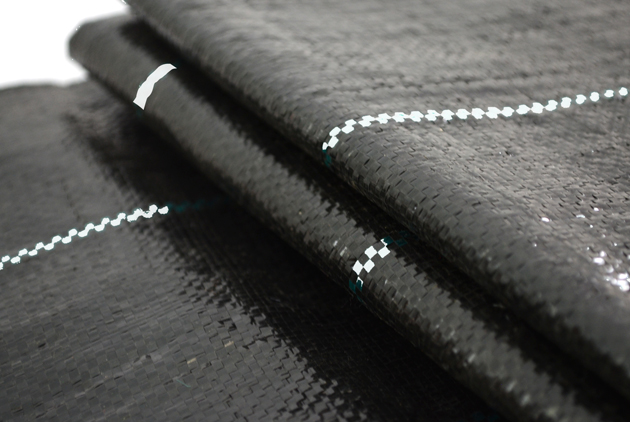


White Striped Weed Barrier FabricIntroductionWhite striped weed barrier fabric i
White Striped Weed Barrier Fabric
Introduction
White striped weed barrier fabric is a versatile and effective solution for controlling weed growth while enhancing the overall health and appearance of gardens, orchards, and agricultural fields. This fabric is designed to provide multiple benefits, including weed suppression, soil protection, and improved plant growth.
Features and Benefits
Effective Weed Control: The white striped weed barrier fabric blocks sunlight from reaching the soil, inhibiting the growth of weeds. This reduces the need for manual weeding and the use of chemical herbicides.
Soil Protection: By covering the soil, the fabric prevents soil erosion and helps maintain soil structure and fertility. It also reduces the evaporation of soil moisture, keeping the soil moist for longer periods.
Enhanced Plant Growth: The fabric allows water and air to penetrate through, ensuring that plant roots receive adequate oxygen and moisture. This promotes healthier root development and overall plant growth.
Reflective Properties: The white stripes on the fabric can reflect sunlight, which can help in reducing soil temperature during hot weather. This is particularly beneficial for plants that are sensitive to high temperatures.
Durability and Longevity: Made from high-quality materials such as polyethylene (PE), the fabric is resistant to UV degradation and can last for several years. This makes it a cost-effective solution for long-term weed control.
Customizable: Available in various widths and lengths, the fabric can be tailored to fit the specific needs of different garden and agricultural setups.
Applications
Gardening: Ideal for covering garden beds to prevent weed growth and maintain soil moisture.
Orchards: Used in fruit orchards to suppress weeds and protect the soil around trees.
Greenhouses: Effective in greenhouses to maintain a weed-free environment and improve the efficiency of watering and fertilizing.
Landscaping: Used in landscaping projects to create clean, weed-free areas around plants and trees.
Usage and Installation
Installation: The fabric should be laid flat over the soil and secured with ground pegs to prevent it from being displaced by wind. It is recommended to overlap the edges slightly to ensure complete coverage and prevent weed growth along the seams.
Planting: Plants can be placed directly through the fabric by cutting small slits or holes where the plants will be positioned. This allows the plants to grow through the fabric while keeping the surrounding area weed-free.
Maintenance: Regular inspection and maintenance of the fabric are recommended to ensure it remains in good condition. Any tears or holes should be repaired promptly to maintain its effectiveness.
Conclusion
White striped weed barrier fabric is an excellent choice for gardeners and farmers looking to control weed growth while promoting healthy plant development. Its multiple benefits, including weed suppression, soil protection, and improved plant growth, make it a valuable addition to any garden or agricultural project. By using this fabric, you can reduce the time and effort spent on weeding while maintaining a healthy and attractive garden.
If you are considering using white striped weed barrier fabric, it is recommended to choose a high-quality product from a reputable supplier to ensure long-term effectiveness and satisfaction.